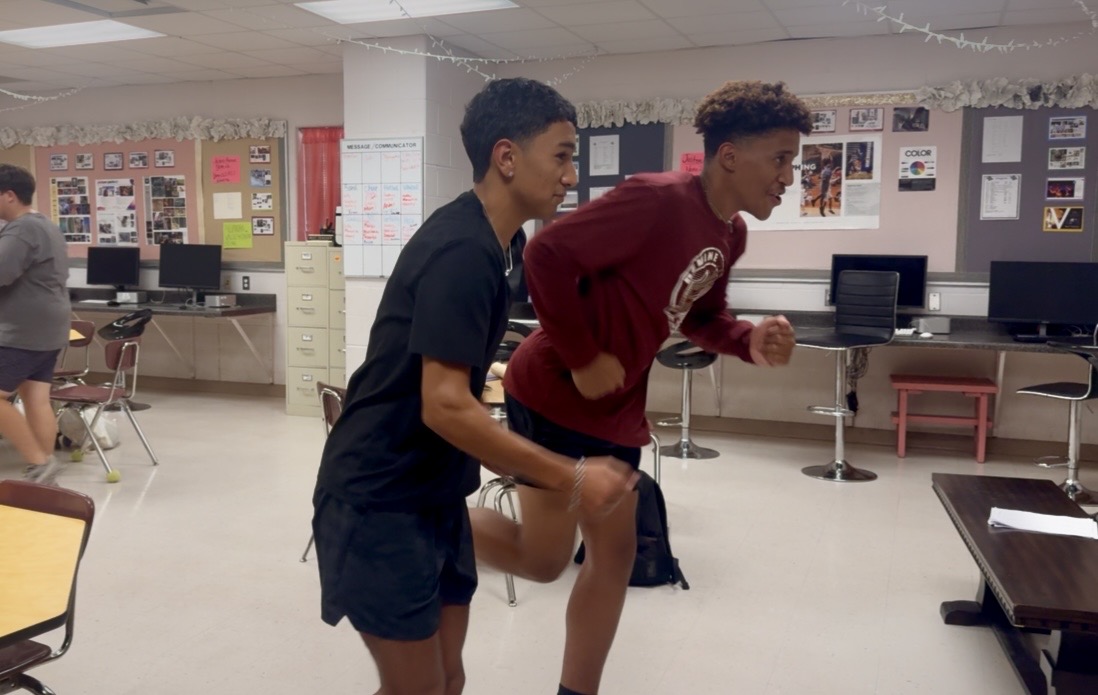On September 10, 2025, conservative political activist Charlie Kirk was fatally shot while speaking to an audience at Utah Valley University. 22-year-old suspect Tyler Robsinson was arrested two days later and is currently believed to be the only one involved in the shooting. The tragedy was filmed by several people who attended the event. Within minutes, the footage circulated all over social media, generating tens of millions of views across several digital platforms.
While there has been widespread condemnation of this attack, it didn’t take long for his murder to be heavily politicized. Kirk’s death has resulted in a wide variety of reactions that range from mourning to celebratory. There are many right-leaning people who feel outraged and disgusted that one of their most influential young political activists was publicly assassinated for using his right to free speech. There are many left-leaning people who feel completely unaffected by the attack and see Kirk’s death as the result of his own rhetoric. This, obviously, is a generalization, and most people across the political spectrum recognize this horrific event for what it actually was: another addition to the list of senseless gun violence that has been committed in America. The assassination of Charlie Kirk is part of a broader, very unsettling trend: the normalization of political violence in American life.

The viral spread of Kirk’s murder footage is emblematic of a digital age where violence isn’t just witnessed, it’s content. Within minutes, clips of the shooting spread across platforms like TikTok, Instagram, and Twitter. Live reactions, political commentary, and memes accompanied the clips. In the wake of Kirk’s murder, violence has become a spectacle; it has become part of the public theater. Even by many of his critics, Kirk was known for maintaining a demeanor of debate over aggression. His death ironically highlights the collapse of that ideal. When speech turns into violence, we lose the tools that allow society to resolve conflict without resorting to bloodshed. This matters because political violence is self-perpetuating. It inspires copycats who want to be involved in the spectacle, and when we allow this kind of violence to persist, it invites the government to enact heavy-handed policies. Charlie Kirk’s assassination is a symptom of a society that is not just heavily polarized, but morally confused and dangerously numb.
One of the scariest things about political violence is that tragedy can turn into ammunition. Kirk’s murder ignited a chain reaction of hyperpartisanship and dehumanization that is tearing our country apart. Conservative figures, including President Trump, frame the killing as proof of “radical left violence” and use that as justification for insulting and alienating the entire Democratic Party. Their grief is being weaponized against a political party that represents roughly half of our country. This kind of rhetoric is what destroys the very foundation of democratic discourse. But the Democratic Party isn’t entirely off the hook in this climate of division. In the wake of Kirk’s assassination, several left-leaning voices have responded not with solemnity, but with celebration, treating his death as a victory rather than a tragedy. This reaction, though not representative of all Democrats, has been amplified in conservative media as proof of the left’s moral decay. It gives the conservative-led government a perceived moral duty to pursue oppressive policies in the name of national security or ideological purification. When any side treats death as a political win, it diminishes the potential for mutual accountability. When mourning is weaponized, it turns grief into grievances. And then it turns grievances into justification for more political divides. We’re living in a climate where political opponents aren’t seen as fellow citizens with differing views, but as existential threats that need to be punished or silenced. This dehumanization has real-world consequences: threats against elected officials, violent protests, and a growing public belief that the only way we can move forward is with force. Kirk’s death should have been a moment of national reflection, but instead it only led to more hate, more division, and more chaos.
To understand the full impact of Charlie Kirk’s assassination, we have to recognize the man as who he really was. Whether you like him or not, he was a man who championed free speech and debate, yet spouted rhetoric that often flamed ideological tensions and accelerated division. His platform, Turning Point USA, was built on provocative messaging. He blamed political opponents as threats to American values, by describing Democrats as “anti-American,” “radical,” or “Marxist.” These claims painted the left as a danger to the republic. Kirk’s influence extended beyond college campus activism; he helped shape the tone of modern conservative discourse that rewards outrage over nuance. Kirk’s language helped normalize the idea that political disagreements equate to national betrayal, and that ideological opponents are not just wrong, but dangerous. The reactions to his death mirrored the polarization that he contributed to. To his supporters, it was the ultimate proof that leftist extremism has gone too far. To some of his critics, his death was seen as karma, which is a sentiment that was conservative media’s evidence of liberal cruelty.
Charlie Kirk’s death did not pause the culture war, it escalated it. What should have been a moment of national reflection became another shouting match between political parties. Instead of unity, we saw amplification of division. The tragedy of his death was quickly absorbed into the partisan warfare, where nuance is sacrificed for narrative. The assassination of Kirk exposed how deep our political tribalism has become. If we continue down this path, we risk losing the principles that allow our democracy to function: empathy, dialogue, and ability to disagree with one another without turning to violence. Kirk’s death should have reminded us of the cost of political polarization, but instead, it became another brick in the wall dividing us.






Troy • Sep 22, 2025 at 3:32 PM
I agree nobody should be harmed or worse killed for speaking on what they believe in.
Patrick • Sep 22, 2025 at 3:31 PM
I think that assassinating someone over an opinion is really bad. This article is great. Maverick did such a good job!
Shawn Lowe • Sep 22, 2025 at 3:29 PM
It’s so sad knowing he had a loving family. It is horrible what the world is slowly turning into. Just because you don’t agree with someone doesn’t mean you can turn to violence towards the person.
Bentley Gutierrez • Sep 22, 2025 at 3:23 PM
I feel like people just need to stop and think about what they are going to do and why. There is no reason to do this type of stuff to a person who debates.
Collier Paige • Sep 22, 2025 at 3:20 PM
What happened that day was tragic and should’ve never happened. The person that did this was wrong in every category.
Zachery • Sep 22, 2025 at 3:19 PM
No one deserves to be harmed over their opinion on anything!
Troy • Sep 22, 2025 at 3:18 PM
I absolutely agree.
Christian • Sep 22, 2025 at 3:15 PM
I agree. I believe that no one should be hurt for sharing their beliefs and opinions, even if it offends someone.
Kash Esparza • Sep 22, 2025 at 3:13 PM
Agreed, I believe that you should be able to speak freely without being threatened or assassinated. I also think that Charlie Kirk didn’t deserve such a thing, along with his wife and kids.
Mason Cordova • Sep 22, 2025 at 3:12 PM
No one deserves to die over political opinion.
Bentley Gutierrez • Sep 22, 2025 at 3:11 PM
I love how Maverick talked about Charlie and his faith.
Maya • Sep 22, 2025 at 3:07 PM
I agree with this. No one should be killed just because they have a different opinion.
Bryan Martinez • Sep 22, 2025 at 3:04 PM
This is a true hate crime. I hate to see what the world is coming to.
WIlliam • Sep 22, 2025 at 2:57 PM
I totally agree with what she wrote about! This was amazing!
Cecilio Delagarza • Sep 22, 2025 at 2:36 PM
The world turning to violence is horrible. The world needs peace no matter what differences we have.
Maddie Tupper • Sep 22, 2025 at 2:29 PM
Honestly I think that just because you didn’t like what Charlie said doesn’t mean that you have to kill him. If you didn’t like what he was saying then you shouldn’t have watched or listened to him talk.
Brayden • Sep 22, 2025 at 2:27 PM
I agree, no one should be killed for their opinions and people shouldn’t be happy or celebrating his death. His death might cause copycats to get involved.
Brooklyn • Sep 22, 2025 at 2:23 PM
Amazing way to display everyone’s opinions!
Caleb Herrera • Sep 22, 2025 at 2:19 PM
With the whole Charlie Kirk situation, I feel bad for his wife and kids, they shouldn’t go through any of this. What really upsets me the most is that someone shot him over an opinion. Overall I like this article and it makes sense. The article has a lot of information and I like the small details too.
Dresden • Sep 22, 2025 at 2:19 PM
I agree that no one should another’s life away. We have the freedom of speech, and if you don want to hear what they have to say then don’t listen. I love the article and job good with all the work put into it.
Bella Perez • Sep 22, 2025 at 2:17 PM
I think what Tyler did was very wrong and Charlie shouldn’t have gone like that.
Kaysen • Sep 22, 2025 at 2:14 PM
I agree. I believe that no one should be hurt for sharing their beliefs and opinions, even if it offends someone. If their beliefs and opinions are not hurting anyone, then they should be allowed to express themselves.
Aaron • Sep 22, 2025 at 1:42 PM
I hate how this world can just shut people up like this! I don’t understand why people cant just let people speak their opinions. I personally liked Charlie but people should never kill others over opinions.
Angel Marie Mason • Sep 22, 2025 at 1:31 PM
100% agree with you Maverick. While I personally did not like Kirk one bit, his killing was still morally wrong. He has the right to speak his opinions, even if most of them were heavily controversial and unliked. I do understand the people celebrating his death’s argument, since his opinions like I’ve said have been heinous, but it just feels wrong. I don’t exactly blame people though since opinions can offend people greatly.
Jesus • Sep 22, 2025 at 12:13 PM
The amount of information I learned from this article is really eye-opening and shocking. Keep up the fantastic work y’all have been putting in.
Manuel • Sep 22, 2025 at 12:08 PM
I agree, the murder of Charlie Kirk and the inflammation of political division is bad
Luke Brown • Sep 18, 2025 at 1:24 PM
I fully agree! I think both sides need to one it down and realize that all forms of political violence is wrong. While I personally dislike Kirk, his death was wrong, and he had the right to speak freely, even if I disagreed with many things he said.